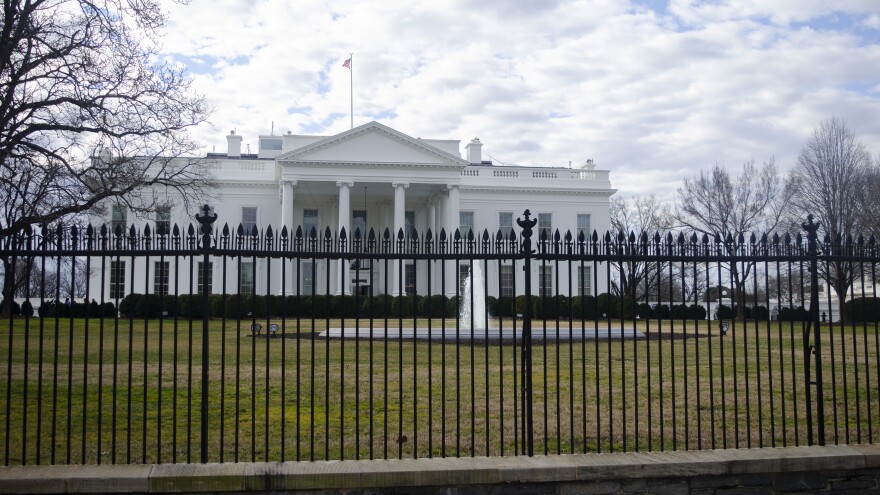Get TPR's best stories of the day and a jump start to the weekend with the 321 Newsletter — straight to your inbox every day. Sign up for it here.
The White House made the controversial decision last week to send cluster munitions to Ukraine as the country deals with ammunition shortages in its ongoing struggle against Russia.
But two San Antonio congressmen say cluster munitions’ risk to civilians is too great to justify sending them to Ukraine.
Cluster munitions separate in the air into dozens or hundreds of smaller bombs, called bomblets. These bomblets can cover an area as large as several football fields and are intended to explode on impact. But cluster munitions are known to have high dud rates, meaning that many of them land without detonating and pose an active threat for decades.
Secretary of State Antony Blinken defended the decision in an interview with MSNBC, saying that Ukraine would be “defenseless” without the cluster munitions.
Congressman Greg Casar said the decision was a grave mistake.
“It’s irresponsible and dangerous for us to use them or for us to sell them because we don’t want to indiscriminately harm children and families and civilians using these cluster munitions,” he said.

Casar is one of several progressive Democrats in the House of Representatives who signed a letter last week opposing the decision. He said he doesn't think the claim from military leaders that the cluster munitions being sent to Ukraine have low dud rates matters.
“If the Pentagon is saying that now our cluster munitions are going to still potentially kill large amounts of civilians, but maybe not as large a number as before, to me that is not a good argument, that is not a moral argument,” Casar said.
Ukraine and Russia have both already used cluster munitions during the war, but Congressman Joaquin Castro said that doesn’t make it okay for the U.S. to participate in their use.
“Many of us believe that we shouldn’t add to the inhumanity and contribute to this very awful situation,” he said.
Casar and Castro, who sits on the House Foreign Affairs Committee, said the U.S. shouldn’t even keep the stockpile of cluster munitions it has.

“I think we ought to follow our own lead with chemical weapons,” Castro said. “We just got rid of our chemical weapons and did away with them and we ought to do the same thing with cluster munitions.”
Castro said he’s advocated for years for the U.S. to join the Convention on Cluster Munitions, an international treaty of over 120 nations that have prohibited the use, production, and transfer of cluster munitions. Neither the U.S., Ukraine, nor Russia are signatories.
Castro added that the U.S. has spent $4 billion helping countries like Laos and Cambodia clean up unexploded ordnance in the last 30 years.
A 2008 UN survey conservatively estimated that 20,000 civilians had been killed in Laos by cluster munitions and other unexploded ordnance after the end of the U.S. bombing campaign in the 1960s and 1970s.
The Mines Advisory Group, which works to clean up unexploded ordinances, says nearly half of that amount have been children.
Castro said the decision to send over a few thousands cluster munitions is bad enough, but what it could lead to is even worse.
“There’s certainly a danger of escalation once you send that first batch or tranche over,” he said. “And that’s just going to make things more dangerous not only today for everyone, including many civilians, but for the people of Ukraine in the years ahead.”



